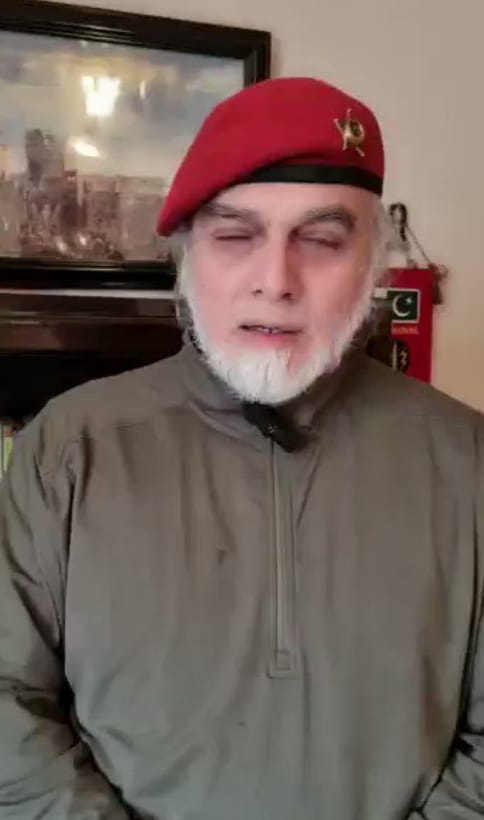
In a live television outburst, the man popularly known in India as Lal Topi—Zaid Hamid—declared that “the time has come to hang Imran Khan.” Swap theatrical outrage for sober scrutiny and what remains is not bravado but a civic emergency: a senior public voice openly normalizing extrajudicial vengeance. This is not mere hyperbole; it is a symptom of a political culture that confuses spectacle with justice.
Televised rhetoric matters. It shapes moods, frames enemies, and crucially lowers the social cost of violence. In Pakistan’s fraught political ecology, where protests spiral into arrests and judicial processes are distrusted, a broadcasted call for public execution does more than inflame: it legitimizes the very lawlessness it purports to condemn. When a commentator with reach chants for a noose, the line between incitement and action dangerously blurs.
Zaid Hamid’s red cap has long been a visual shorthand—part folklore, part persona. But when that persona trades in calls for death, the costume becomes complicity. The spectacle of revenge now competes with the sober, inconvenient work of courts, investigations, and evidence. If justice is reduced to TV verdicts, appeals and due process become afterthoughts; mob logic becomes policy in rehearsal.
This pattern is painfully familiar. Pakistan’s political life has cycles of sanctification and annihilation—leaders elevated to miraculous heights and later cast as monsters. Language escalates from criticism to vilification, and from vilification to calls for elimination. Public figures who fuel this escalation have responsibilities that go beyond ratings. They are gatekeepers of public discourse. To trade that gate for a gavel is to weaponize the airwaves.
What makes such calls especially dangerous is not only their content but their context. Pakistan is no stranger to political violence, and it has paid a heavy price for judicial shortcuts and martial theatrics. The memory of executed leaders and the long shadows they cast should caution every commentator against reckless escalation. Yet, when anchors and pundits prefer spectacle over scrutiny, the country’s institutional memory frays further.
The media ecosystem, too, must take stock. Sensationalism that rewards extremity will always find mouths to shout and screens to amplify them. Editors and producers cannot plead neutrality while providing a platform to people who urge violence. Balance is not giving equal weight to calls for murder; balance is defending the norms that keep the state from becoming a stage for vengeance.
Civil society and jurisprudence must respond forcefully. Condemnation is necessary but insufficient; the state and professional bodies must reaffirm the sanctity of due process, and media regulators must consider ethical consequences of amplification. Free speech does not immunize incitement to violence.
Zaid Hamid’s words are a reminder that democracy is not merely majority rule or media theatre. It is, at its core, a commitment to institutions that protect rights—even of the unpopular. If Pakistan values its future, it must insist that justice proceed through courts, not cameras; through law, not lynch-logic.
Until then, the red cap will be remembered not for patriotism but for the moment it tilted from commentary into a call for blood—proof that rhetoric, when left unchecked, can sink a republic faster than any external enemy ever could.





















